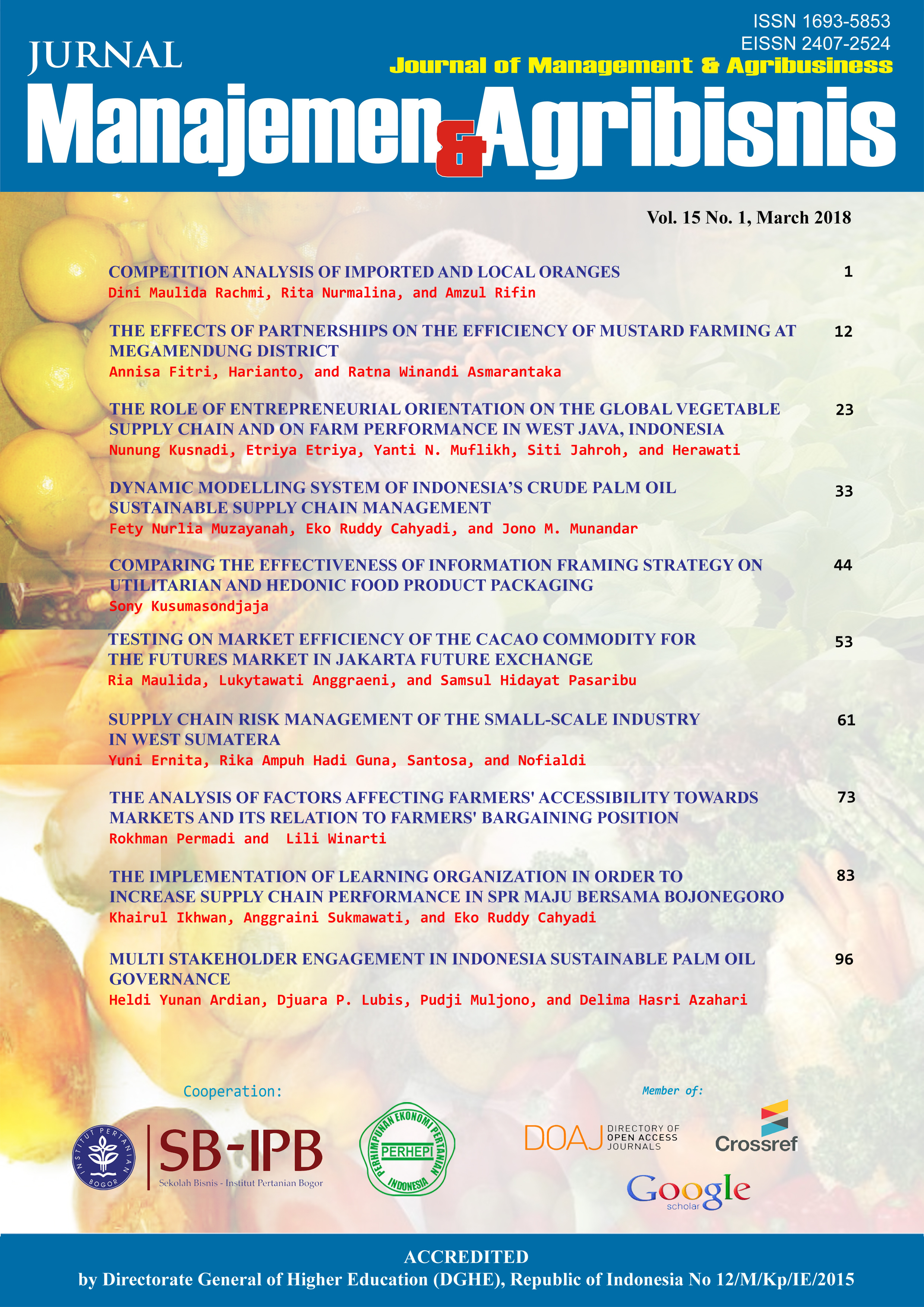Dynamic Modelling System of Indonesia’s Crude Palm Oil Sustainable Supply Chain Management
Abstract
The agricultural sector has an important role in economic activity in Indonesia. It is reflected from its contribution to the Gross Domestic Product (GDP) of approximately 13.46 percent in 2016 and its ability to absorb 31.86 percent of Indonesian workforce in February 2017. The objectives of this study are to simulate the scenarios of increasing sustainable production in the model of sustainable supply chain management of Crude Palm Oil (CPO) and to formulate policy alternatives for the development of sustainable supply chain management of Indonesian CPO. Data used in this research were primary data and secondary data. The analyzer used in this research was dynamic system model by simulating the replanting policy, moratorium, and environmentally friendly cultivation technique. The result of this research shows that the dynamic system model of sustainable supply chain management CPO Indonesia built is valid, both through structure test and performance model test. Scenario 4 provides the greatest PV of all scenarios of 10.99% larger than the baseline. The best policy alternative is to implement replanting and sustainable agriculture practices with zero burning on the new land clearing process to give better net benefits value.
Authors
Authors who publish with this journal agree to the following terms:
- Authors retain copyright and grant the journal right of first publication with the work simultaneously licensed under a Creative Commons Attribution License that allows others to share the work with an acknowledgement of the work's authorship and initial publication in this journal.
- Authors are able to enter into separate, additional contractual arrangements for the non-exclusive distribution of the journal's published version of the work (e.g., post it to an institutional repository or publish it in a book), with an acknowledgement of its initial publication in this journal.
- Authors are permitted and encouraged to post their work online (e.g., in institutional repositories or on their website) prior to and during the submission process, as it can lead to productive exchanges, as well as earlier and greater citation of published work (See The Effect of Open Access).

